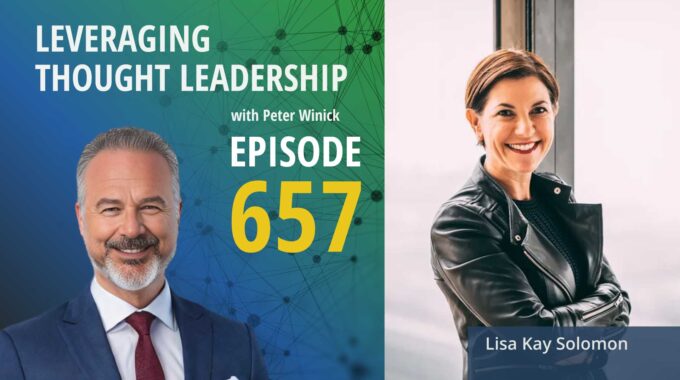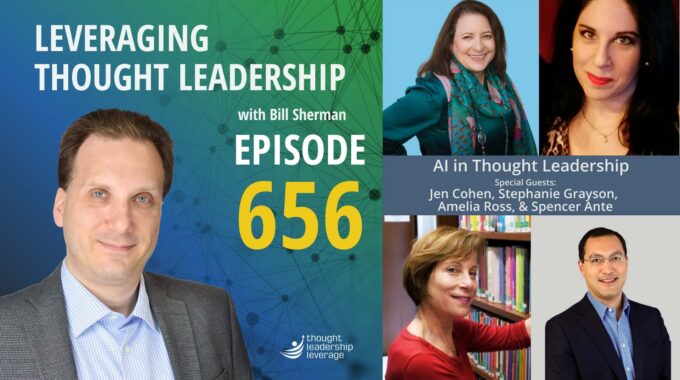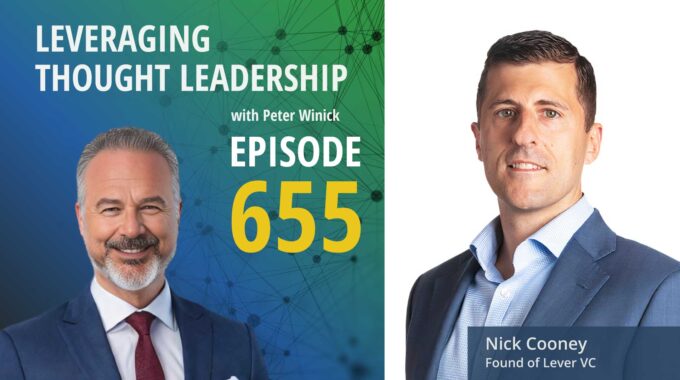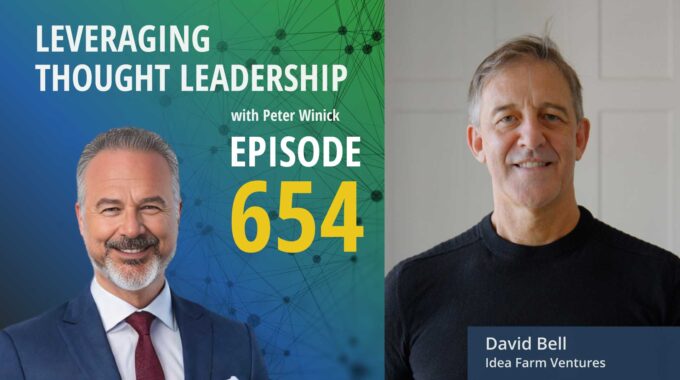How design thinking and futures literacy can transform your leadership This episode explores how leaders…
The Intersection of Leadership, Business, Culture, and Spirituality | Eboni Adams Monk
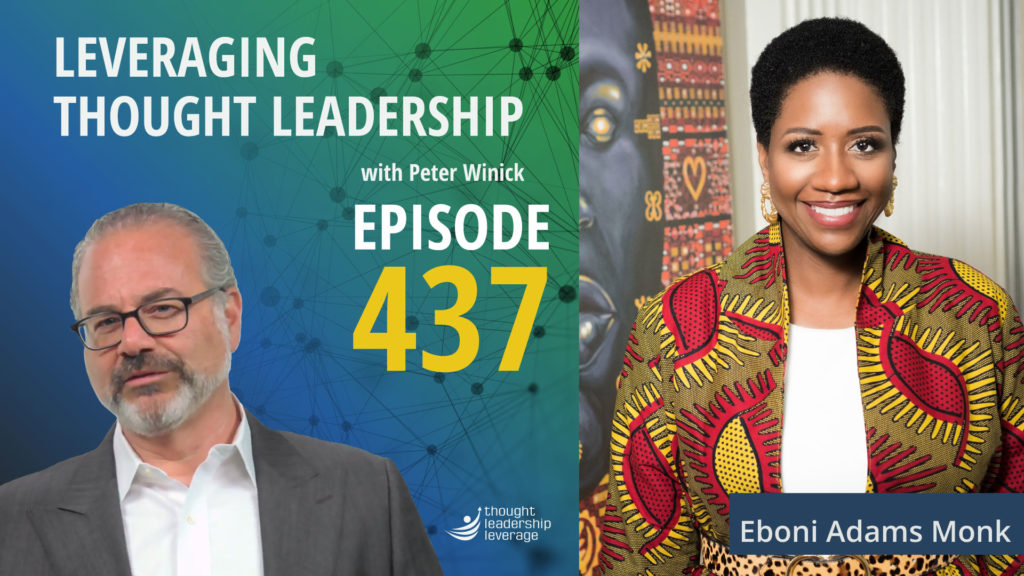
A look at what an evolved corporate community looks like.
An interview with Eboni Adams Monk about how corporations impact communities and culture.
Is your organization evolving with the needs of its culture, or are you stuck in a mindset that no longer serves your business or its employees?
Our guest today is Eboni Adams Monk, the Vice President of Marketing and Commercial Excellence at Trinseo, a specialty material solutions provider that partners with companies to bring ideas to life in an imaginative, smart and sustainable manner. She is also the author of Leading Wise: Inspirational Reflections for Corporate Leaders, which offers inspirational prompts and a global perspective for corporate leadership.
In our conversation with Eboni, we learn what an evolved corporate community looks like and what it does. She explains that by thinking about the impact a business has on the people and cultures in our community, we can support and enhance those around us – while assisting our company in meeting financial and operational goals.
In addition, Eboni shares how she dances at the intersection of leadership, business, culture, and spirituality, encouraging business leaders to develop themselves in ways that encourage thinking and feeling deeply for the people in their employment, and in their community. This creates a stronger relationship with employees and co-workers, and that brings more out of them – and makes critical or difficult conversations easier to have.
Three Key Takeaways:
- Corporate culture should support the people and communities it impacts the most.
- When creating content, think about how you can spark interest and curiosity in your audience.
- Leaders should take time for reflection and meditation, in order to absorb the world around them and inspire transformation.
If you need a strategy to bring your thought leadership to market, Thought Leadership Leverage can assist you! Contact us for more information. In addition, we can help you implement marketing, research, and sales. Let us help you so you can devote yourself to what you do best.
Transcript
Peter Winick And welcome, welcome, welcome. This is Peter Winick. I’m the founder and CEO at Thought Leadership Leverage. And you’re joining us today on the podcast, which is Leveraging Thought Leadership. Today, my guest is Eboni Adams. She she’s a writer, a thought leader, a culture lover, a wisdom keeper. I love that. And a call to inspire and guide leaders to lead deeply and live fully. So she started off life on the south side of Chicago, and she’s embarked on a journey to explore the world and discover deep and mysterious truths. So that’s sort of vague and intriguing. So let’s just dive in. How are you today?
Eboni Adams Monk I’m great. How are you?
Peter Winick I’m good. So you’ve got writer, author, thought leader. Give us the short version of how you got here. Because I’m always interested in the journey.
Eboni Adams Monk Of the journey is always amazing. So, I mean, I could start with be really a theory about how I started when I was born and all of these things. But the reality is that from an early age, my parents always pushed me to sports to be excellent, right? This whole journey of excellence and what that meant for me was I’ve always had an open mind. They introduced me to a lot of different concepts in Chicago, everything from black history to really encouraging me to study. I was really good with sciences and math, and so they pushed me into engineering and now neither of them. That’s not their careers of choice. My mother was a teacher and a principal and ago, and my father was a firefighter and a lieutenant in the fire department. So I was really blazing trails even before I really realized it. And what happened over a period of time, particularly as I got into college and after college, is I really began to be curious about who I who I was as an African American woman living on a south side of Chicago. And I was always very curious about my genealogy and my family. Where did people come from and what were they like? And I started to learn different things and then I started to go back even further. And that took me into this this journey of being really curious about Africa and African culture. And over time, that curiosity expanded into just being curious about all kinds of cultures.
Peter Winick It’s interesting stew there for a moment, because there’s this common trait, the lack of a better term that I see across lots and lots of, I would say, most thought leaders and it’s somewhere between or some blend of curiosity. And there’s this lifelong learning piece. Right. And some people are more curious than others. And some people, you expose them to something new and they go down this rabbit hole and they can’t get out, right? Like in a good way. And others, you expose them to something amazing and fascinating, whatever. And they sort of yeah, whatever you do are like thoughts on that, like why some people are just inherently more curious and, you know, get exposed to ideas and actually do something versus that’s.
Eboni Adams Monk I mean, maybe it has something to do with the human spirit beings being sparked, right? And in me, like I feel like everybody has something that brings them to life. For some people, it’s voting for jogging, right? And for me, it just happens to be culture. It makes me feel alive. I feel happy just learning about different cultures and participating in and whether it be song, whether it be dance, or just learning about how people live their lives, how they cook their food and why they do things the way that they do. It became just becomes very important for me. There is a part of indigenous culture specifically that is very much involved with this concept of being as good of a person as you can be and kind of stepping into your destiny or stepping into your power. And that always intrigued me and always felt very much connected to that. The language game of how a lot of indigenous yeah.
Peter Winick Interesting.
Eboni Adams Monk That concept.
Peter Winick So I purposely left out the most interesting sentence or at least to me on your bio and I want to throw it at you and get you to respond to it. So it says, you know, I learned to dance in the intersection of leadership, business, culture and spirituality where I inspire and teach others how to lead with integrity and purpose. So I’m dancing at that. So even just the word dance and leadership, business, culture and spirituality, what does that look like when you’re doing things in the business world?
Eboni Adams Monk Oh, what a great question. So. Let me tell a little bit of a story of how all this came together. I always say that I’ve lived two parallel lives that have really just hurt, that I made a decision to converge. And what happened was I kind of did the same thing that a lot of people do. I went to college, I got my degree. I came out, I got a job working in corporate America very quickly, began to move into management positions and leadership roles and so on. So I was successful in that lane. I did. At the same time, I was living a life where I was studying culture and I met a woman who became a very one of my very powerful teachers. In my book there, really for teachers that I talk about and one of those women was a woman from Brazil that I met, quote unquote, by chance in Chicago. She came there to teach about culture and spirituality. And I developed a relationship with her. And I felt very much connected to that way of living. So I pursued that I would go back and forth to Brazil and I was incorporating all of the lessons that I was learning from her, from this community, from this philosophy into my life and not just my personal life. So it wasn’t just like I was sitting at home.
Peter Winick And that’s why I want to go because I there’s a lot of work on wellbeing, spirituality, etc., etc. that clearly falls into the personal development category. And I’m not that I’m not interested in that, but I’m but I’m totally fascinated with, well, how do you integrate that or introduce that or how does it connect to what’s going on in the business universe?
Eboni Adams Monk So what I started what I noticed that I started to do very naturally is I didn’t separate. So it outside, like most of us will say, we could be walking down the street or at a store and we meet someone and we end up having this really great conversation. We say, man, that person was put in my way, right? I was meant to meet that person, this this impact. I began to have that way of thinking inside of words. My thought process was in indigenous culture. One of the beliefs is there’s no one that we meet that’s truly new. We’ve all known each other before in some capacity on different levels. And so at work we spend so much time, a lot more time at work that we do with our families. And just how can I not have some kind of a deeper relationship or deeper purpose with the people in which I work? And so that is an example. So I began to treat them in that way when I would have as a manager, when I would have performance discussions with my family, I was yes, there was a piece of it that was. Did you achieve these five goals that we set at the beginning of the year? But it also became an opportunity for me to direct the conversation in a way that I was asking people about their purpose, not just that work, but their general purpose. Like, let’s not talk about the goals for a second. Let’s not don’t think about this place. Tell me what really brings you alive.
Peter Winick So the gist is really? Yes. So the gist is really not. Connecting it directly to supply chain, chain growth strategy, blah, blah, blah. But getting to know the person as a person so that you can deepen the relationship so that good things happen. So it’s a bit indirect, what it’s a roundabout way to develop these connections and rapport across folks. And I think what’s happened in the business world is we’ve all been siloed. I’m a marketer, you’re an operator, you know, you’re an engineer and I’m a salesperson, whatever the case may be. And then that has that silo has been impacted by COVID, because if we used to at least go to the building every day, whatever that meant, right. I might see in the lunchroom, say hello to you in a meeting. Whatever. Now we have less and less time to interact. So I know less and less of the two of you and more and more of the title on your business call.
Peter Winick If you’re enjoying this episode of Leveraging Thought Leadership, please make sure to subscribe. If you’d like to help spread the word about our podcast, please leave us a review and share it with your friends. We’re available on Apple Podcasts and on all major listening apps as well as at ThoughtLeadershipLeverage.com/slash podcasts.
Eboni Adams Monk Right? That’s absolutely right. I find that, you know, the relationships are critical. And as a manager, what I began to notice is that I was listening with my entire being when I was with my team or if I was in a meeting. So there may be something intuitively that I’m picking up from the room has not been talked about, and I might be the one to raise my hand and say and introduce a concept or a question. And then people say, Oh goodness, thank you for bringing that up. Like we really need to talk about that piece. So as a leader, you know, one of my philosophies has been that I really need to take care of myself and develop myself using some very basic principles and deep in my own knowledge of myself, so that when I’m interacting with other people, I’m able to think very deeply and feel very deeply so that the relationship is strengthened, but also so that I can bring more out of them. I can bring up topics that perhaps wouldn’t normally talk about, but those topics may be absolutely critical for that person because they may be going through something that they need some support with or to just bring out more so that they’re able to perform in that.
Peter Winick So do you have maybe an example of an organization or even maybe with a team inside of an organization that gets this and does it well? And what the difference is to them in terms of that they embrace this way of thinking.
Eboni Adams Monk I don’t know if there’s a specific organization. I know that there are many companies who are embarking on this path. There’s an organization that I been a part of, was president for a couple of years and my local chapter of an organization called Conscious Capitalism. And that organization has many member companies who over the years have delved into different parts of kind of what I think about when I think about an evolved corporate community, what that looks like. And so it could be anything from thinking about how we impact our communities outside of our companies, but also how we impact the cultures within our communities and how we create a culture that actually supports the people. And at the same time allows the company to meet their financial and operational objectives.
Peter Winick Got it. And there are there any patterns that you see in terms of this type of group, you know, of Gen Z embraces this more than the boomers, or is it universal or.
Eboni Adams Monk That’s a really and so.
Peter Winick Engineers are more reluctant than marketers. I don’t know any sort of.
Eboni Adams Monk What I think is I’ve been surprised and this kind of work that I do and the way that I approach my work and being able to have such an open mind is I’ve been surprised by conversations that I’ve had with people who I would think, don’t embrace this idea of taking the work deeper. And so I don’t know if it’s any particular age group. I think that as a whole we tend to approach work a little bit differently. So my sons, for example, they’re in their twenties, so, you know, 18, a 21 year time frame. And what I see with that particular generation is they will work hard, but they will not let themselves be taken advantage of in any way. So if it’s not working for them and it just feels like it’s too much, they figure out a different way. Whereas my generation, yeah, we just work hard. That’s what I was taught to do. You go to work, you work hard, you sacrifice a little bit and then you’ll be rewarded for it eventually.
Peter Winick So stay there for a moment then, because. Maybe our generation took too much nonsense, too early. Or maybe that’s the way you sort of earned your stripes right along the way. And maybe the younger generation isn’t as resilient, or if you bail at every opportunity, that is an ideal because they call it work for a reason. Not every debt. You know, we all want to be engaged. We all want to be intrinsically rewarded at work, all these other things. But it’s not something where every moment of every day is like you’re frolicking through Disney World, right?
Eboni Adams Monk And so, yeah, I believe that there’s a balance right in that. And I also believe that every soul comes here is on the planet to achieve some goal. Right. So it’s very individual. For some people. It may actually be to work as hard as they can because they need to learn discipline and they need to learn how to challenge, how to communicate with people in a particular way. It doesn’t mean that people should sacrifice themselves for that, but that might just be part of their learning curve for other people. And I could raise my hand and I’d be more about recognizing that you’ve worked pretty hard, and maybe it’s time to recognize that it’s okay to have fun as a human. And so pull back a little bit and have some fun, learn how to work that in. Right. So for me, I feel like it’s a balance and it may be different for each person as they move through the course of their lifetime. The lessons that are available for us every year, they may change. We get new insights, we get new challenges. And based on how we work through those, I feel like we get weathered, right. I think about there’s always this visual of the river flowing over the rocks, right. Mean, whatever it takes, however many years for that rock to become smooth and no longer jagged. And what that process looks like for each of us is different.
Peter Winick Interesting. Well, this has been great. Any final thoughts? Words of wisdom. Things you want to get across?
Eboni Adams Monk You know, I think for me, I just always ask people or encourage people to take time to sit back and just think. So that’s my social media always saying, you know, take a break, sit back, reflect. Because in that reflection and however we tend to do it, some people ride their bikes, some people sit and meditate. However you do it, take the time to really sit back and just allow the deepest parts of yourself to speak. Give them voice. We’re so busy, particularly here in the USA. I’m so busy with work and always doing things that this calendar that we don’t always take time to just sit back and think about the work we’re doing, how we’re doing it, what are we going to do next week or even next year, and how does that really align with that purpose of who we are?
Peter Winick Great stuff, I appreciate your time. Thank you for coming on board today and be well. Thank you so much.
Eboni Adams Monk Thank you.
Peter Winick To learn more about Thought Leadership Leverage, please visit our website at ThoughtLeadershipLeverage.com to reach me directly. Feel free to email me at Peter at ThoughtLeadershipLeverage.com and please subscribe to Leveraging Thought Leadership on iTunes or your favorite podcast app to get your weekly episode automatically.



